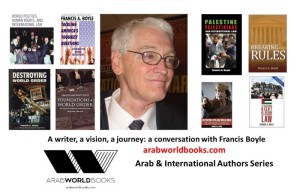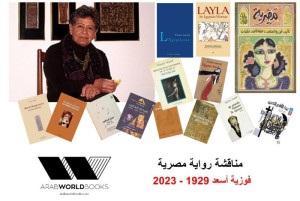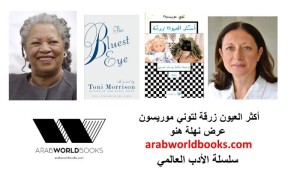Robin Yassin-Kassab*
The National April 16, 2015
“A man,” wrote the poet Shelley, “to be greatly good, must imagine intensely and comprehensively; he must put himself in the place of another.”
The novel, if well-achieved, is the form offering the greatest opportunity to experience the world through another’s eyes, to escape the self by shifting perspective; a novelist could perhaps be defined as a person able to see his home as freshly as a foreigner would, someone unable to take anything for granted. This is Saud Alsanousi’s successful conceit in The Bamboo Stalk – a plea for tolerance that won the prestigious International Prize for Arabic Fiction in 2013 – a text supposedly translated from Filipino to Arabic, now really (and wonderfully) translated to English by Jonathan Wright.
When he’s in Manila, our narrator is called José, and sometimes “the Arab”. In Kuwait, he’s called Isa, and sometimes “the Filipino”. José/Isa is the product of a brief marriage between a migrant housemaid and a Kuwaiti of good family. He looks Filipino but has his father’s voice. It’s to him that the title refers – “a bamboo plant, which doesn’t belong anywhere in particular … the stalk will grow new roots if replanted”.
So Alsanousi, with great wit and lightness of touch, portrays the inner dynamics of not one but two families, and of at least two cultures. Half the book takes place in the Philippines, a tropical and entirely credible setting, redolent of mangoes and diesel fumes. Among the vividly drawn characters are a roguish, broken grandfather and Isa’s mixed-race cousin Merla, who has good reason to resent both men and Europeans. She looks to an unconventional love for solace, as well as to the “purely Filipino religion” of Rizalism, a deification of independence hero José Rizal.
This inquiry into religion is one of the novel’s main themes. Isa’s mother believes everything happens for a reason. Isa is more sceptical. “Resorting to faith,” he dryly observes, “by its very nature, requires faith.” But he has plenty himself, and it thrives on varied food – in a Buddhist temple, through his aunt’s Catholicism, or in a felt, not learnt, appreciation of Islam. All this is handled subtly and generously, culminating in a Sufic focus on the heart.
Isa’s father was killed during the Iraqi occupation, but his promise – to bring his son back to Kuwait – is fulfilled nevertheless. Kuwait was the dream of Isa’s Filipino childhood. Transplanted now in his father’s home, he puts down roots in a precarious space, somewhere between his relatives and the domestic servants. For his Kuwaiti family, class and racial prejudices make Isa more of a dilemma, and a potential source of shame, than a celebrated long-lost son. Another, equally memorable character set plays out the drama of gossip and suspicion – the human rights activist aunt, the good-hearted half-sister, a grandmother whose cantankerous style matches the Filipino grandfather.
Through Isa’s eyes we interrogate all manner of social peculiarity, from Sunni-Shia differences to the casual use of English in Arab conversation. Isa is privileged and cursed to hear from all perspectives, including the servant class, treated “as if we have no feelings and don’t understand anything”.
It makes for funny as well as uncomfortable reading. It’s a measure of its success that, despite the honest analysis of their faults, the reader feels great sympathy for the Kuwaitis, who are never anything worse than victims of a social system. And there’s a great deal in them to love – the “craziness” that Isa adores, their clapping and dancing, the warm solidarity of their diwaniya gatherings. Alsanousi is keen to stress Kuwaiti as much as Filipino diversity, the enormous physical and cultural range even in a country that can be crossed in half an hour. And the text is playful enough, sufficiently confident, to turn such tricks as a walk-on role for Ismail Fahd Ismail, the real-life father of the Kuwaiti novel.
If The Bamboo Stalk is an inquiry into personal, national and spiritual identity, it’s a coming-of-age novel too. As such, it depicts its protagonist’s journey towards a mature self-knowledge. And as surely as José/Isa achieves this, so too does Kuwait, and the Arabian Gulf in general, through Alsanousi’s writing. The multicultural but semi-segregated Gulf has long constituted a cosmopolis in denial. Now, in this truly cosmopolitan and deeply humane novel, it has found a voice and a mirror.
This line describes Isa’s father, but it applies equally to Saud Alsanousi: “He wanted to change reality with a novel that was candid and harsh, but his only motive was love.”
*Robin Yassin-Kassab is the author of the novel The Road From Damascus. He is writing a book with Leila Al Shami on the Syrian revolution.
Bamboo Stalk a prize winning novel about mixed identity
By: Robin Yassin Kassab - on: Saturday 1 August 2015 - Genre: Book Reviews
Upcoming Events

Joseph Conrad's Heart of Darkness Discussion
April 27, 2024
Join us for a special discussion of Joseph Conrad&...

A writer, a vision, a journey: a conversation with Francis Boyle
February 24, 2024
This event took place on 24 February 2024 Yo...

Discussion of Fawzia Assaad’s An Egyptian Woman
November 25, 2023
In celebration of the life and outstanding achieve...

Toni Morrison's The Bluest Eye, A Presentation and Discussion
October 28, 2023
This presentation and discussion of Toni Morrison&...
